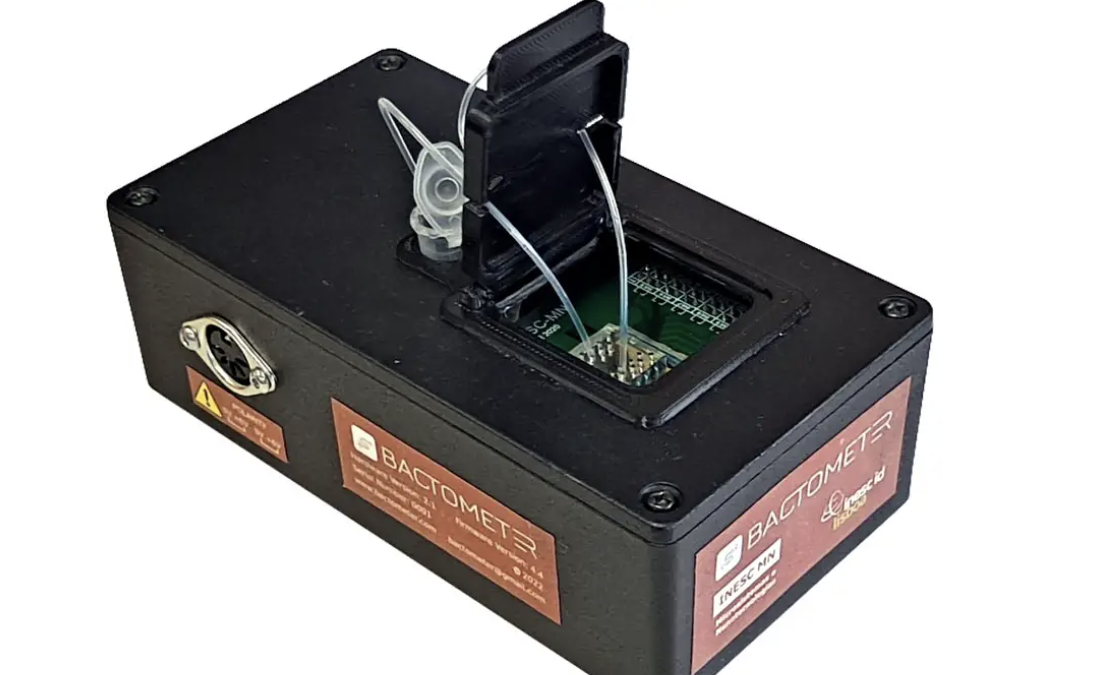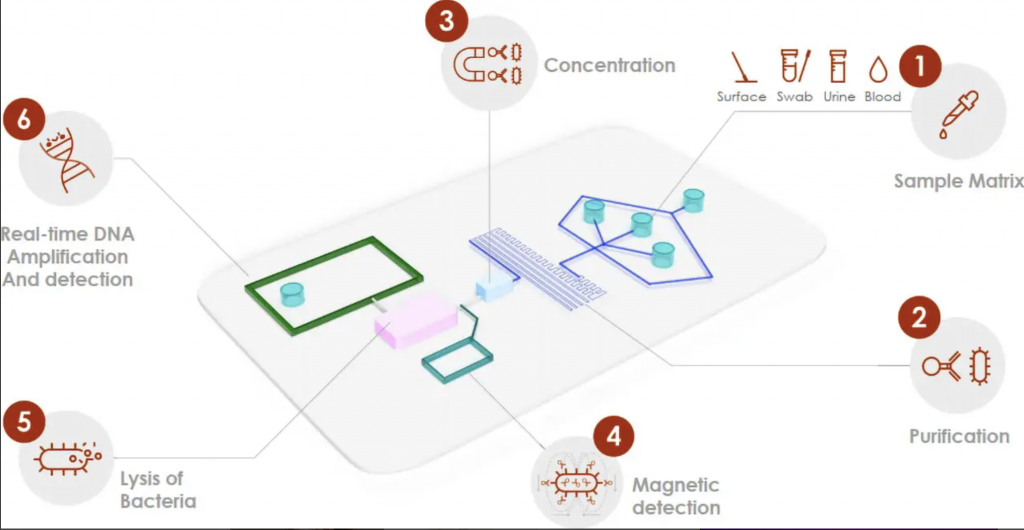
INESC ID researchers contributed to the development of an intelligent device for the detection of multi-resistant bacteria
A group of Portuguese researchers from INESC-ID and INESC MN have contributed to the development of Bactometer, a biological detector that can be used as screening system to detect multi-resistant bacteria in less than an hour.
Multidrug-resistant bacteria are estimated to cause about 4.5 million hospital infections every year in Europe. Every day, patients colonized with multidrug-resistant bacteria are seen in Intensive Care Units, introducing these microorganisms into the hospital environment. These microorganisms develop more resistance and infect 1/5 of hospitalized patients.
Bactometer will allow rapid and efficient identification of the strain of bacteria and its resistance mechanisms, reducing the current waiting time of 48-72h (with the laboratory culture method) to less than 1h. This new device will serve as a valuable support in the battle against antimicrobial resistance in Hospital environments.
Additionally, the device is easily operated with no need for previous experience (similar to a COVID test) and the cost is similar to lab cultures (a classic but less precise method). This alternative is highly accurate on par with other expensive and sophisticated methods, such as PCR.
Bactometer was created thanks to the research that has been developed at INESC for the last 15 years (INESC MN and INESC ID), as the device integrates technologies resulting from this long research work.
The project was launched and monitored by Técnico professors: Paulo Freitas and Susana Cardoso from INESC MN and Moisés Piedade, Jorge Fernandes and Gonçalo Tavares from INESC-ID.
The current project team is composed by 4 elements from Instituto Superior Técnico: Diogo Caetano (Electrical and Computer Engineering Ph.D.), Ruben Afonso (Electrical and Computer Engineering Ph.D. candidate), Débora Albuquerque (Biomedical Engineering Ph.D. candidate) and Ana Rita Soares (Technological Physics Ph.D.).
The device development also counted with the support of the Portuguese start-up Magnomics. Founded in 2013, the company is focused on delivering the next generation of fully portable in-vitro molecular diagnostic devices. The basis of its novel and proven technology was transferred from INESC-ID and INESC MN and is based on an on-chip DNA extraction, amplification, and magnetic detection.

More about the Bactometer on the official website.
Official Press Release (INESC Brussels)
